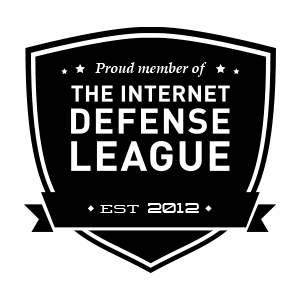Forum Replies Created
-
AuthorPosts
-
My plugin should find this threat. Can you send me a screenshot of the scan results or send me your wp-admin login so that I can take a look?
That error means that there is no response from your server when testing the session feature. I am not sure why your site will not start a session but it is usually due to a server configuration issue, like php.ini settings or the permissions on the /tmp/ directory (or wherever the session files are kept on your server). Check your server’s error_log files and ask your host to verify that session files can be stored on your server.
So You cannot change the file permissions in FileZilla. I’m sorry that your host was not more helpful. You may be able to fix the permissions on these files using your hosting control panel, there is usually some kind of file manager that can change the permissions for you. Otherwise you would have to convince your hosting provider to step up and help you or else move your sites to another host.
How many sites do you have on this host?
It would seem that there is a permission issue on those files that prevents them from being fixed by any PHP process on your webservers. You could try to change the permissions on those files so that they can be automatically fixed by my plugin.
If you need more specific guidance then I would need more detailed information about the specific situation on your server. Please feel free to send me screenshots or any other specific info that might help if you need further assistance.
By default the Firewall Option to block User Enumeration is Automatically Enabled. This means that any attempt to pass a numeric value for the Author property in the URL that is not in the wp-admin path is automatically redirected. You can choose to disable this protection in the in the Firewall Option under the Anti-malware Setting if you want to allow these link to enumeration pathes that are not under /wp-admin/.
You would need to fix whatever is wrong with that server that prevents it from creating a persistent session. Maybe it is the wrong permissions on the /tmp/ directory or that partition is full, or maybe the session path is set to a directory that does not exist. You would need to refer to your error_log files to find the answer that pertains to your particular situation.
Try editing that teenage-cancer-trust page in your wp-admin and just remove the viagra link that was injecting into your DB content.
The MW:BLK:2 is just a generic label that sucuri assigns to that type of infection, it refers to a blacklisted domain used in your site’s code.
If you click on the details and is says 31wp.org then you would need to look for script references in your site’s HTML that point to 31wp.org. Sucuri has labeled the jquery.js URL at that domain as a malicious threat but that URL does not seem to be working any more anyway so I think your site will be ok. Just just the page content for script tags and make sure your theme does not refer to 31wp.org in the header.php or footer.php files.
Sorry but I did not get your email.
The MW:BLK:2 label that you first asked me about refers to a blacklisted domain which is used in your Newspaper theme’s header and footer to load remote scripts from fastestwaytocome.com.
These external scripts were probably hacked to redirect traffic to those other sites.
First check the origin install files for that theme that you downloaded from their site to see if those script references were injected into your copy or if there were an intentional part or the theme’s design. Then remove those scripts from the header and footer to see if that stop the redirects.
Also, please send me a copy of those infected header and footer files. You can email me directly:
eli AT gotmls DOT netThis sounds like it could be a direct SQL injection. the hacker might have access to alter your database without having access to your servers filesystem. You can try changing your DB_PASSWORD and updating your wp-config.php file to match the new password in the hopes that the hackers cannot get back in but if they have root access to your DB server then you would need to move to a more secure host (unless your current hosting provider can make you DB more secure on their server).
That is not a link to a malware definition, that is just a generic label that sucuri assigns to that type of infection.
Can you please give me some information that will enable me to help you with this issue (infected URL, link to sucuri scan results, or you installation key for this domain)? Feel free to contact me directly if you do not want to post this on my public forum.
Thanks for the suggestions. I do have those ideas in my mind to incorporate into a future release but there or other more pressing updates that I am currently working on right now.
In the mean time, maybe I can help you figure out why it’s taking so long to scan your site, it should never take 5 hours to scan a site unless there is something wrong on your server. Are there any folders that the scan seems to be spending a lot of time in or does the scan seem to freeze up on any particular folders?
Can you send me a screenshot of the scan process while it is part way through a scan?
May 6, 2018 at 5:00 pm in reply to: conditional-shipping-for-woocommerce/woo-conditional-shipping.php #2096The version of this file that I just downloaded from the WordPress Plugin Repository is clean and my plugin does not flag it as a threat, so if it is marked as a Known Threat on your site then it may have actually become infected. Please send me the version of this file that you have so that I can check it for you.
May 4, 2018 at 7:09 pm in reply to: Another Plugin or Theme is using something to handle output buffers #2094That error seems to be pointing to W3TC (the caching plugin) have you tried disabling caching and deactivating W3TC?
There could also possibly be some malicious script that is pretending to be W3TC but it would not be on a fresh new installation of WordPress unless your whole server is compromised. How many sites do you have on this server and are they all installed in subdirectories under a main/parent site?
It must be hitting a PHP memory_limit while trying to index those files. You could try increasing the memory_limit value in the php.ini file on your server. If that does not work then maybe you could find another way to organize those files or purge all the older files if you don’t need them.
-
AuthorPosts

